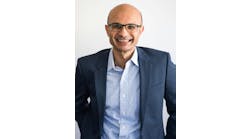Academic medical centers such as Vanderbilt and the University of Minnesota have created centers to train learning health system scientists and coordinate research projects. Now the University of California San Diego School of Medicine will establish a Center for Learning Health Systems Science to provide instructional and experiential learning opportunities for clinicians and researchers in learning health systems science.
A learning health system (LHS) is described as creating a virtuous cycle where data collected in routine care is studied for variations and best practices, and that knowledge feeds changes to the system to create better performance. The concept has been gaining momentum for several years, but since 2020, the pandemic has really given the movement a boost, and more health systems are establishing infrastructure and training programs around it.
The UCSD School of Medicine has received a $5 million, five-year grant from the Agency for Healthcare Research and Quality (AHRQ) to establish the center, which will include three cores, which will serve different functions.
Ming Tai-Seale, Ph.D., a professor of Family Medicine at UC San Diego School of Medicine and principal investigator on the new grant, will lead the Administrative Core, which manage and provide oversight for the center.
Michael Hogarth, M.D., professor in the Department of Medicine, will lead the Research Data and Analytics Core, which will provide data science expertise to scientists within the center. Crystal Wiley Cené, M.D., M.P.H., will lead the Research Education core, which will support research projects and provide mentorship opportunities to scientists within the center. Cené serves a dual role as the chief administrative officer for health justice, equity, diversity and inclusion at UC San Diego Health and associate chief medical officer for health equity.
“Health systems across the world often face similar problems, such as poor utilization of resources, rising costs and disparities in access to care,” said Tai-Seale, in a statement. “I envision that the new center will help our researchers and clinicians understand and overcome these system-level challenges and accelerate our progress toward a highly reliable learning health system.”
“Improving healthcare isn’t always about developing new treatments,” added Tai-Seale. “It’s also about improving the way we deliver healthcare through improving patient-provider communication, helping underserved populations access care and even reducing burnout among healthcare workers. In a learning health system, all of these complex factors affecting healthcare can be studied systematically while simultaneously bringing new knowledge into clinical practice.”
The new center will seek to foster collaboration among UC San Diego faculty across eight different departments, who will serve as mentors to the learning health system scientists who receive training through the center.
“It’s important to us that the center’s impact extends beyond UC San Diego Health into the surrounding community,” added Tai-Seale.
Trainees in the center will take courses through UC San Diego to learn the principles and practices of learning health systems science. In their second and third years of training, trainees will be empowered to complete their own projects and put their findings to practice in the clinic.
“A true, complete learning health system is still just an ideal right now, but this center will bring us significantly closer to achieving that ideal,” said Tai-Seale. “We hope that this initiative will improve healthcare here within San Diego county and establish us as a world leader in this new and evolving approach to improving healthcare.”


